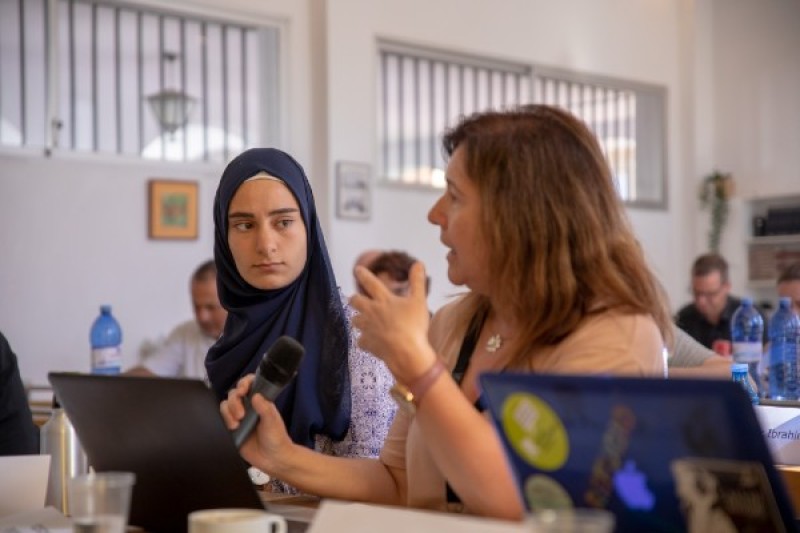Over 40 participants gathered in Spain for the 5th annual Summer School on Human Rights, which discussed the intersection of populism and freedom of religion or belief. Photo: CEC/Miguel Trigo Moran
Press Release No: 18/24
13 July 2018
Brussels
“Religious pluralism is indissociable from and indispensable for democratic societies. It requires an unambiguous commitment to Freedom of Religion and Belief on the side of the state, but also mutual respect and support on the side of religious and belief communities.”
Core Message of the 5th Summer School on Human Rights
From 8 to 12 July, more than 40 participants gathered at the Ecumenical Centre Los Rubios in Málaga, Spain, for a summer school on religion and populism. The group of Christian, Muslim, and Jewish representatives were brought together at the invitation of the Conference of European Churches (CEC) and its Spanish partners. Discussions focused on the role of religions on a European continent witnessing the increasing influence of populist politics. Speakers emphasised that, while populists often use religious identity as an instrument of division, believers are among the first to suffer from a decrease of democracy and the rule of law.
Dr Ibrahim Salama from the Office of the United Nations Human Rights Commissioner observed that religions are often perceived from their differences, but emphasise should rather be laid on what connects them. Ms SImona Cruciani of the UN Office of Genocide Prevention, New York, called upon religions to support the UN action plan for religious leaders on the prevention of genocide. The Ambassador of the Council of Europe to the UN, Ms Dragana Filipovic, explained the Council’s role in promoting and defending freedom of religion or belief throughout Europe.
Rev. Alfredo Abad, from the host Evangelical Church in Spain, drew attention to the fate of Francisco Manzanas and other Protestant pastors in Spain. “After the European Court of Human Rights decided in 2012 that pastor Manzanas had been discriminated against, because he had not had the same access to a state pension as Roman Catholic priests in Spain, we were convinced that this unfair treatment would be ended,” Abad noted. “But until today Spain has not changed its discriminatory legislation, despite the Strasbourg ruling. Having to make up for the state’s failure to pay these pensions will eventually ruin our church financially. Therefore we are grateful for CEC‘s support of our rightful claims.”
Imam Sayed Razawi, Scottish Ahlul Bayt Society, and Ms Michal Zilberberg, European Jewish Community Centre in Brussels, stressed that discrimination starts with very simple and common prejudices that form the ideological basis for hate speech and populist agitation.
Summing up the week’s proceedings, Rev. Dr Göran Gunner, moderator of the Thematic Reference Group on Human Rights (TRG) of CEC, concluded “Religious actors can play a vital role in combating populism, racism and intolerance.” He stressed that CEC and its Member Churches have a strong tradition in building bridges, which helps to contest notions that religious identity is built upon divisions rather than on dialogue.
Building on these fruitful exchanges, the TRG on Human Rights will continue to facilitate discussions related to populism and religious freedom.
Erin Green
Communication Coordinator
Tel: +32 2 234 68 20
e-mail: eeg@cec-kek.be
Website: www.ceceurope.org
Facebook: www.facebook.com/ceceurope
Twitter: @ceceurope
